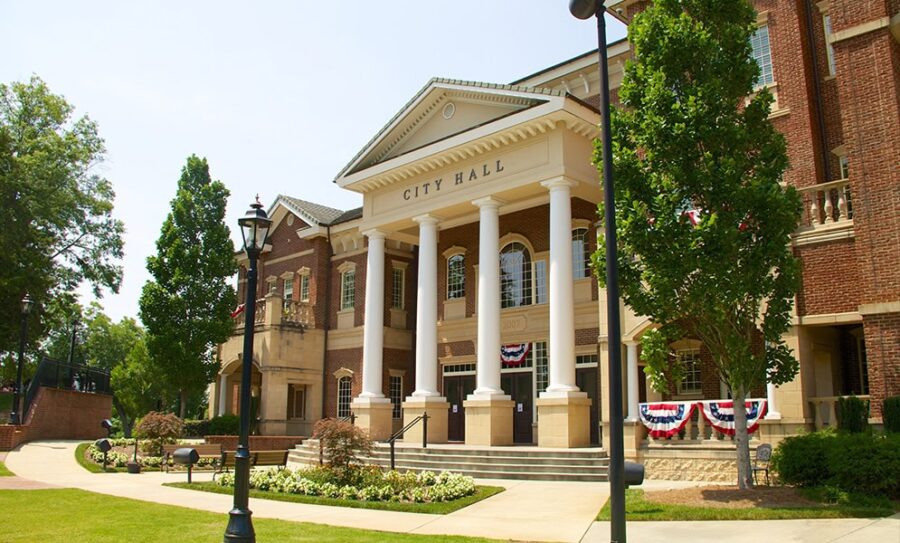Biblical Foundations of Local Leadership
Jethro’s Advice to Moses on Delegated Authority
“Moreover, look for able men from all the people, men who fear God, who are trustworthy and hate a bribe, and place such men over the people as chiefs of thousands, of hundreds, of fifties, and of tens.” Exodus 18:21
These are the sage words of Jethro, Moses’ father-in-law, to Moses at Mount Sinai. As Moses shouldered the burden of resolving disputes and teaching God’s law, Jethro saw that no one man could sustain this alone. As he witnessed Moses sit all day and judge every case brought to him, he noticed the burnout beginning to set in and offered advice about what we might call the first civil government “of the people, by the people, for the people.” Jethro recognized the value of local government.
God-Fearing, Trustworthy Leaders Who Reject Corruption
As we examine Jethro’s words to Moses, we see not only his direction for the Israelite people but also guidance for our present-day leaders. His instructions are:
- Look for “men who fear God”—those who recognize His power and submit to His reverence.
- Look for men “who are trustworthy”—those set apart to judge fairly according to God’s law.
- Look for men who “hate a bribe”—those unswayed by temptation and unmoved by corruption.
- Place such men at various levels to govern “thousands, hundreds, fifties, and tens.”
Although today we are thousands of years removed from the Israelites as they started their journey to the Promised Land, we are still plagued with similar sins. We still struggle with the chaos of sin and the temptation and deception of the evil one. We still struggle with civil disputes that need to be resolved. We still need able men and women who fear God, are trustworthy, and hate bribes to help govern the affairs that keep our communities safe and flourishing.
Why Local Government Matters Today
Local Leaders Are Your Neighbors
“Who do you think has your best interest in mind, the person you sit next to at church, or the state legislator you’ve never met? The person in line with you at the grocery store, or someone on Capitol Hill?”
In our communities today, local governments are made up of such men and women—residents you see at the grocery store, attend local sporting events with, or serve alongside at church. These people make up city councils, school boards, hospital boards, and other agencies that meet and discuss the needs of their communities. Local governments are on the front lines of community well-being. They strive to improve the quality of life in our neighborhoods, uphold civil standards of right and wrong, create opportunities for growth and development, and ensure individuals take responsibility for their actions and their properties. At its foundation, this is the structure that Jethro was offering to Moses for the Israelites: delegated authority, qualified leadership, and structured governance.
Community Impact Starts with Local Election
“The government closest to the people serves the people best.”
Today, local governments are decided through local elections, and their importance may surpass that of both the state and federal levels. Often attributed to Thomas Jefferson, but with unknown origins, the idea that “the government closest to the people serves the people best” emphasizes the importance of local government. Who do you think has your best interest in mind, the person you sit next to at church, or the state legislator you’ve never met? The person in line with you at the grocery store, or someone on Capitol Hill?
Civic Apathy and Its Consequences
Communities both thrive and die at the local level. Unfortunately, apathy towards these positions is substantially more than at any other level. There’s always buzz around governors, senators, and presidents—their decisions, their controversies, their every move. But let’s be honest: most of us aren’t running for those offices, and our ability to directly influence them is limited. Still, we zero in on these high-profile leaders as if they alone shape our lives, while allowing our local governments to drift into the background, assuming they’ll just take care of themselves. They won’t.
“When we disengage, we miss the very level of government that most directly affects our day-to-day lives…”
Often, we find ourselves hyper-focused on these distant arenas, pouring our attention and energy into political battles that feel monumental, while neglecting the spaces where our voices can actually make the most immediate and tangible impact: our local governments. When we disengage, we miss the very level of government that most directly affects our day-to-day lives—from education and public safety to zoning, infrastructure, and neighborhood development. If we want stronger, more responsive communities, we need to stop treating local government as an afterthought and start treating it as the front line of civic impact.
Plato’s Warning About Indifference to Governance
This apathy is what Plato alluded to when he said,
“The price good men pay for indifference to public affairs is to be ruled by evil men.”
The “evil men” are those who don’t fear God, those who aren’t trustworthy, and those who welcome bribes.
Christian Civic Engagement at the Local Level
Real change begins when we recognize the power of our local governments and step up to participate. This is where ideas ignite action, action shapes policy, policy inspires involvement, and that involvement lays the foundation for thriving, vibrant communities.
Enjoy more articles here.
Learn more about engaging with your civil government by exploring our resources.





